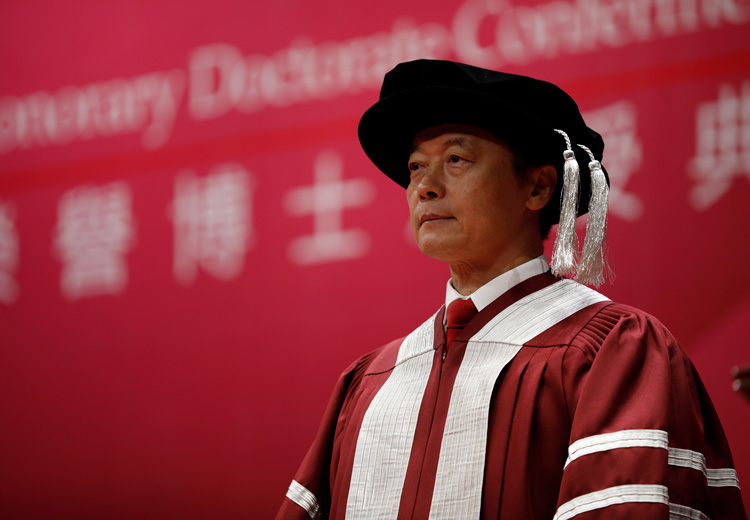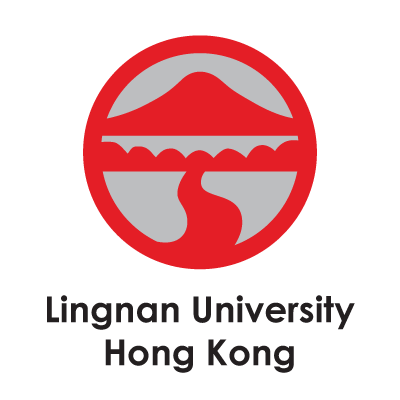A new age for Lingnan University

Sponsored by

Sponsored by

As Lingnan University welcomes a new president, the institution is ready to embrace the future – without forgetting the successes of its past
Tracing its roots back to 1888, Lingnan University was founded in Guangzhou as Canton Christian College. The university has been on a varied and historically important journey since then. After facing significant disruption during World War Two and the post-war development period until 1952, the institution was eventually re-established in Hong Kong as Lingnan College in 1967 before being renamed Lingnan University in 1999.
Today, Lingnan University is renowned as a global education leader, leveraging partnerships with more than 250 institutions around the world, across 49 countries. It offers a broad-based curriculum that follows best practice in liberal arts education.
As with other higher education institutions, Lingnan University’s success is a collective effort by its founders, pioneers, dedicated alumni, staff and students. The university owes part of this success to its former presidents – from its founding to today. It now operates under the leadership of S. Joe Qin – an education leader and renowned scholar with a diverse range of experiences to draw from.
“I was educated in automation at Tsinghua University in China up until my master’s degree, at which point I decided to study a PhD in chemical engineering at the University of Maryland in the US,” Qin explains. “After that, I gained three years’ experience in industry as a principal engineer, before moving back into academia as a professor for 25 years in the US. In January 2020, I returned to Hong Kong, initially to become the first dean at the School of Data Science at the City University of Hong Kong.” Qin’s work has earned him fellowship status in the US National Academy of Inventors, the American Institute of Chemical Engineers, the Institute of Electrical and Electronics Engineers and the International Federation of Automatic Control.
Qin’s career journey comprises more than 30 years of experience – even if you only consider the time following the conclusion of his PhD. This will serve him well as he begins his presidency at Lingnan University, particularly as he has worked at various institutions and in different regions. “During my time as vice-dean at the University of Southern California’s School of Engineering, I also spent three years on leave as vice-president at the Chinese University of Hong Kong, Shenzhen,” Qin says. “This involved working on a brand-new campus, helping to establish a number of campus-based services for students and faculty members.”
More than his experience alone, however, Qin’s passion for education will prove extremely important to his presidency. “I believe higher education and innovation through research and teaching are hugely important,” he notes. “Having seen the education systems in both the US and Hong Kong, I have experience of the elements that could benefit education in mainland China – not only in terms of developing students with first-rate academic credentials but also supporting them as they become good all-around people.”
The presidency at Lingnan University attracted Qin not only as a means of fulfilling his passions but also because he believes that his prior experience enables him to contribute to the institution and its students. “The presidency is hugely inspiring to me for several reasons,” Qin says. “First of all, Lingnan University has a deep history and heritage spanning more than 135 years in the higher education space. It has already played a leading role in modernising China’s higher education sector, having housed a number of great scholars over the years.”
In addition to building on this rich history, Lingnan University’s international outlook also attracted the professor. Lingnan has served as a bridge between China and the US, promoting a rich exchange of information, learning and communication – for both teachers and students. “There are some tremendous stories about how Lingnan helped to bring China’s higher education sector up to the new global standard,” Qin says. “Even so, the university and the sector still have plenty of room to grow, so as much as Lingnan’s legacy inspires me, its opportunities for continued growth are similarly motivating.”
Of course, for Lingnan University to continue its development under Qin’s presidency, the institution has some challenges to overcome. Some of these will necessitate a rebalancing of focuses, with Lingnan providing students with a more comprehensive offering that enhances its liberal arts focus and employability. “Other challenges that I must overcome during my presidency include finding ways to make Lingnan University more research-driven, even as it continues to offer a solid liberal arts education,” Qin admits. “Today, knowledge has to be refreshed rapidly. Technologies like artificial intelligence are ensuring that the world changes extremely quickly. We want to become the leading liberal arts university of the digital age. We will have to revitalise everything about the institution to better embrace the ongoing process of digitalisation.”
To overcome its challenges, Lingnan University will undergo a mindset shift. This first involves finding a way to keep the ethos of a liberal arts institution intact while accepting and pursuing modernisation. “People think a liberal arts university must be small,” Qin says. “But many top universities in the US, such as Princeton, offer liberal arts programmes with a substantial student body. We have to find ways to grow both our undergraduate and graduate cohorts.”
Aside from confronting these challenges head-on, Qin aspires to maintain and enhance Lingnan University’s positive impact on the community – both in Hong Kong and beyond. “I want to focus on learning for service,” Qin says. “Lingnan has always excelled at making a societal impact, and I believe this is an area where I can make a strong contribution. The university has a significant opportunity to develop education in Hong Kong and the Greater Bay Area. There remain major societal and technological problems in the world, but we are in a great position to be part of the solutions, fostering international collaboration and developing students as global citizens.”
To ensure these students continue to meet society’s evolving needs, innovation will be paramount. Under Qin’s presidency, Lingnan University will become more research-intensive, demonstrating a commitment to continuously revising its curricula and incorporating cutting-edge content. Digitalisation will be another focus. With generative artificial intelligence set to transform workplaces around the world, Lingnan University, under the stewardship of Qin, will prepare its students to adapt to the changing demands of a rapidly evolving world.
“I view Lingnan 1.0 as the era from 1888 to 1952 in Guangzhou, which established the university’s rich heritage and cultures,” Qin explains. “Lingnan 2.0 is from the Hong Kong re-establishment to the present-day and Lingnan 3.0 represents the future – a future where the university’s unique history and geographic location create new opportunities for our students.”
Find out more about Lingnan University.